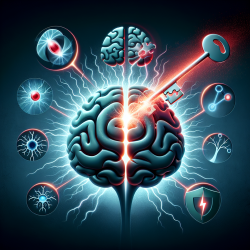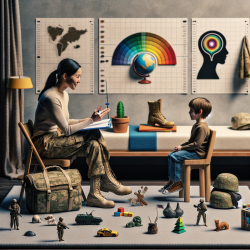Introduction
In the realm of auditory neuroscience, the concept of an "Auditory Reserve" is gaining traction, offering insights into how early auditory experiences shape our abilities later in life. This blog delves into the findings of the research article "Auditory Reserve and the Legacy of Auditory Experience" by Skoe and Kraus, exploring how practitioners can harness these insights to enhance their skills and encourage further research.
The Auditory Reserve Hypothesis
The Auditory Reserve Hypothesis posits that early auditory experiences create a neural scaffolding that influences auditory abilities throughout life. This reserve is akin to a cognitive reserve, which explains why some individuals are more resilient to neuropathology. The hypothesis suggests that enriched auditory experiences, such as musical training, can fortify this reserve, leading to more robust auditory processing abilities.
Implications for Practitioners
Practitioners can leverage the insights from this research in several ways:
- Encourage Early Musical Training: Introducing musical training in childhood can enhance auditory processing and potentially slow down age-related declines.
- Foster Enriched Auditory Environments: Creating environments rich in meaningful auditory experiences can strengthen the auditory reserve, benefiting individuals across their lifespan.
- Advocate for Continued Research: Understanding the nuances of how auditory reserves are built and maintained can lead to innovative therapeutic strategies.
Exploring Further
The research highlights the importance of continued exploration into how different types of auditory experiences contribute to the reserve. Practitioners are encouraged to delve deeper into the subject, considering factors such as:
- The role of bilingualism and other forms of auditory enrichment.
- The impact of auditory impoverishment and its long-term effects.
- Potential interventions to bolster auditory reserves in individuals with hearing loss or other auditory challenges.
Conclusion
The Auditory Reserve Hypothesis offers a promising framework for understanding how early experiences shape auditory processing abilities. By integrating these insights into practice, educators and therapists can enhance their approaches, fostering resilient auditory systems in their students and clients. For those eager to explore further, the original research paper provides a comprehensive overview of the hypothesis and its implications.
To read the original research paper, please follow this link: Auditory Reserve and the Legacy of Auditory Experience.










